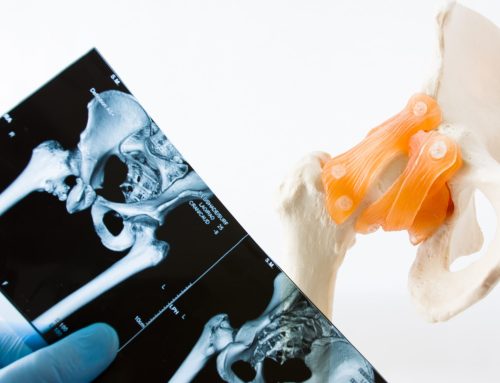Carpal Tunnel Syndrome (CTS) is a common condition that affects many people, causing pain, numbness, and tingling in the hand and arm. If you’re struggling with CTS, you might be wondering if carpal tunnel surgery is the right option for you. In this blog, we’ll explore carpal tunnel syndrome, the symptoms, the diagnosis process, and the benefits of carpal tunnel surgery.

What is Carpal Tunnel Syndrome?
Carpal Tunnel Syndrome occurs when the median nerve, which runs from your forearm into the palm of your hand, becomes compressed at the wrist. This nerve is responsible for providing sensation to your thumb, index finger, middle finger, and part of the ring finger. It also controls some small muscles at the base of your thumb. When the tunnel narrows or tissues surrounding the flexor tendons swell, they can compress the median nerve, causing CTS.
Causes of Carpal Tunnel Syndrome
Several factors can contribute to the development of CTS, including:
- Repetitive hand movements, especially if the wrist is bent downwards or upwards.
- Health conditions like diabetes, rheumatoid arthritis, and thyroid gland imbalance.
- Pregnancy, which can cause swelling in the wrists.
- Wrist injuries or fractures.
- Genetic predisposition, as some people naturally have a smaller carpal tunnel.
Symptoms of Carpal Tunnel Syndrome
The symptoms of CTS can range from mild to severe and can affect your ability to perform daily tasks. Common symptoms include:
- The thumb, index, middle, and ring fingers have numbness, tingling, or burning sensations.
- Pain or tingling that may travel up the forearm towards the shoulder.
- Weakness in the hand and a tendency to drop objects.
- Difficulty performing tasks that require fine motor skills, such as buttoning a shirt or typing.
Diagnosing Carpal Tunnel Syndrome
Accurate diagnosis of Carpal Tunnel Syndrome (CTS) is crucial for effective treatment. If you're experiencing symptoms like numbness, tingling, or pain in your hands, it's essential to consult a healthcare professional. Early diagnosis can prevent further damage and help manage the condition more effectively.
Initial Assessment
If you're experiencing symptoms of CTS, it's important to seek medical advice. Your healthcare provider will start by taking a detailed medical history and physically examining your hands, arms, shoulders, and neck to determine whether your symptoms are related to daily activities or an underlying disorder.
Diagnostic Tests
- Nerve Conduction Studies (NCS): This test measures the electrical impulses in your median nerve and how well the nerves and muscles respond.
- Electromyography (EMG): An EMG measures the electrical activity of your muscles at rest and during contraction.
- Ultrasound: An ultrasound can provide a clear picture of the bones and tissues, helping to identify swelling or abnormalities in the carpal tunnel.
- X-rays: Although not used to diagnose CTS directly, X-rays can rule out other conditions, such as arthritis or fractures.
When to Consider Carpal Tunnel Surgery
If non-surgical treatments such as splints or physical therapy don't relieve your symptoms or if your condition is severe, carpal tunnel surgery may be the best option. If you experience persistent numbness, tingling, and pain that interferes with your daily activities and sleep, surgery might be necessary to relieve the pressure on your median nerve. Severe CTS can cause weakness and muscle atrophy in the hand, making it difficult to perform everyday tasks. Surgery can help restore function and prevent further deterioration.
Benefits of Carpal Tunnel Surgery
Carpal tunnel surgery is a highly effective treatment for relieving the symptoms of CTS. Here are some of the benefits:
Quick Recovery
Most patients experience significant relief from symptoms soon after surgery. Although full recovery may take a few weeks, many people can quickly return to normal activities.
Improved Quality of Life
Surgery can significantly improve your quality of life by alleviating the pain and discomfort associated with CTS. You'll be able to easily perform daily tasks and enjoy previously difficult or impossible activities.
Long-Term Relief
Carpal tunnel surgery provides long-term relief for most patients. While symptoms can recur, especially if the underlying causes are not addressed, most people experience lasting benefits.
Types of Carpal Tunnel Surgery
There are two main types of carpal tunnel surgery: open-release surgery and endoscopic surgery.
In open-release surgery, the surgeon makes an incision in the wrist and cuts the transverse carpal ligament to enlarge the carpal tunnel. This reduces pressure on the median nerve. This procedure is typically performed under local anaesthesia and effectively provides symptom relief.
Endoscopic surgery is a minimally invasive procedure where the surgeon makes one or two small incisions and uses a tiny camera (endoscope) to see inside the carpal tunnel. The transverse carpal ligament is then cut to relieve pressure on the median nerve. This technique generally results in a faster recovery and less post-operative discomfort than open surgery.
What to Expect After Surgery
After surgery, you'll need to follow specific post-operative care instructions to ensure a smooth recovery. This may include:
- Keeping your hand elevated to reduce swelling.
- Taking prescribed pain medications as needed.
- Performing gentle hand and wrist exercises to prevent stiffness and promote healing.
Recovery time varies depending on the individual and the type of surgery performed. Most people can resume light activities within a few days, but it may take several weeks to regain full strength and function. Your surgeon will provide a detailed recovery plan tailored to your needs.
Carpal tunnel surgery can be an effective solution for those suffering from persistent and debilitating symptoms of CTS. If you've tried non-surgical treatments without success, or if your condition is severe, surgery may be the right choice to improve your quality of life and reduce pain. At Gateway Surgery, we help facilitate your private surgery, ensuring you receive the best care possible with minimal wait times. Our team will arrange all pre and post-operative services, allowing you to focus on healing and returning to your daily activities.
If you're considering carpal tunnel surgery, contact Gateway Surgery today to learn more about how we can assist you in your journey toward a pain-free life. Our goal is to provide you with the highest quality care and support every step of the way.
Have you been frustrated by long wait times for surgery? Do you believe carpal tunnel surgery can alleviate discomfort? Share your thoughts with us in the comments below.




